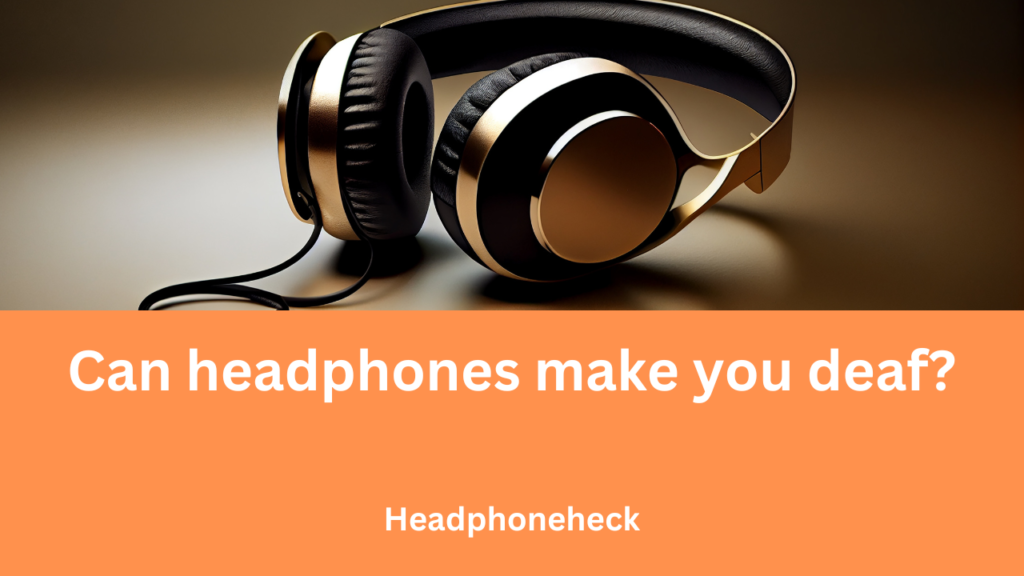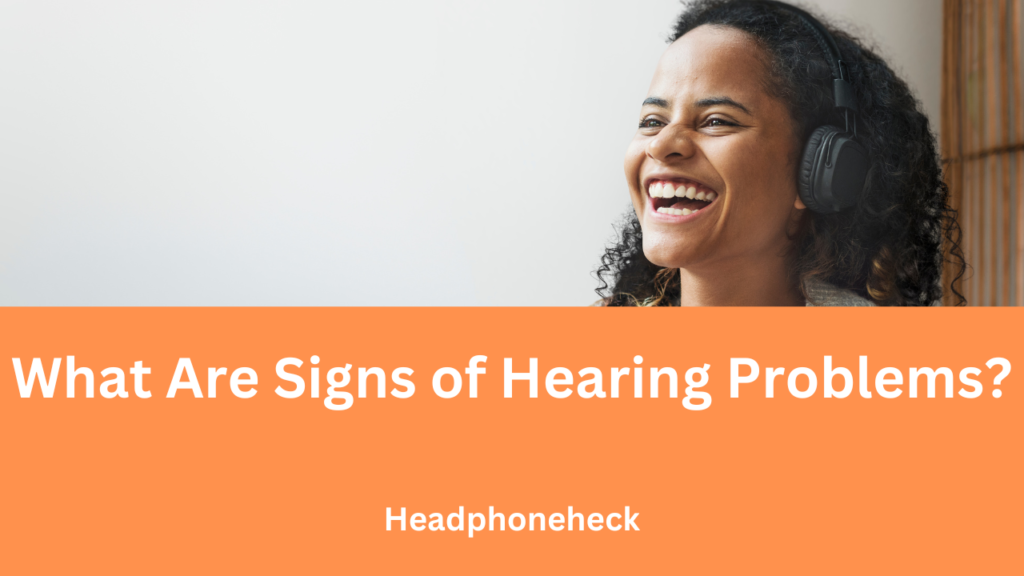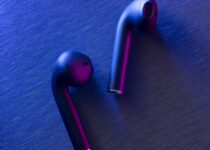Can headphones make you deaf?
Are your headphones a silent threat to your hearing? In a world filled with the rhythm of life, we often underestimate the impact of our favorite tunes.
Uncover the surprising connection between headphones and potential hearing loss.

Explore the nuances of this auditory dilemma and discover how our insights can safeguard your sonic pleasures.
Dive into our article for an ear-opening experience!
Here, do Emirates provide headphones?
Can headphones make you deaf?
Prolonged and excessive use of headphones at high volumes can contribute to hearing loss.
The delicate structures of the inner ear are susceptible to damage from loud sounds, and headphones that deliver intense audio directly into the ears can accelerate this process.
Listening to music or other content at high volumes for extended periods may lead to permanent hearing damage.
It’s crucial to practice responsible headphone use by keeping the volume at a moderate level and taking breaks to allow the ears to rest.
Additionally, using noise-canceling headphones at lower volumes can help reduce the need to increase volume in noisy environments.
Regular hearing check-ups are advisable to monitor and address any potential issues. Overall, moderation and awareness of volume levels are essential to prevent headphone-related hearing damage.
The 2021 study indicates that around 1.7% of the global population suffers from noise-induced hearing loss.
The research highlights a significant risk factor, revealing that individuals using headphones in already noisy environments face a 4.5-fold higher likelihood of experiencing hearing loss.
This underscores the importance of being mindful of the auditory environment when using headphones and suggests that heightened awareness and caution are crucial to prevent potential damage to one’s hearing.
Here, can you use headphone while charging?
How loud is too loud?
Determining when sound becomes “too loud” depends on various factors, including individual tolerance, the duration of exposure, and the specific decibel level.
Sound is measured in decibels (dB), with prolonged exposure to levels above 85 dB potentially causing hearing damage.
At 120 dB, discomfort and pain can occur, while sounds exceeding 140 dB can cause immediate harm.
However, subjective factors, such as personal sensitivity and the type of noise, also play a role.
Continuous exposure to loud environments, like concerts or construction sites, may lead to long-term hearing issues.
Additionally, the World Health Organization suggests that for a healthy auditory environment, average daily exposure should not exceed 70 dB.
Monitoring and limiting exposure to loud sounds, using hearing protection in noisy settings, and being aware of potential risks are crucial in maintaining auditory health.
Ultimately, what constitutes “too loud” is a balance between objective measurements and individual well-being.
Here, can you wear headphones with a peirce tragus?
What Are Signs of Hearing Problems?
Signs of hearing problems include difficulty understanding conversations, asking others to repeat themselves frequently, turning up the volume on electronic devices, withdrawal from social situations due to communication challenges, and experiencing ringing or buzzing sounds in the ears (tinnitus).

Individuals may also struggle to hear high-pitched sounds or have trouble localizing the source of sounds. Ear pain, dizziness, or a feeling of fullness in the ears can also indicate potential issues.
Regular check-ups with an audiologist and prompt attention to any noticeable changes in hearing can help identify and address hearing problems early.
Here, do headphone have radiations?
Related faq’s
Can using headphones cause deafness?
Using headphones at excessive volumes for prolonged periods can damage hearing and lead to deafness over time.
High sound levels cause permanent damage to the delicate structures of the inner ear.
It’s crucial to keep volume levels moderate and take breaks to protect your hearing health.
How long does it take for headphones to cause hearing loss?
The time it takes for headphones to cause hearing loss varies based on factors like volume level and duration of use.
Prolonged exposure to loud volumes, especially above 85 decibels, can lead to gradual hearing damage.
Consistent safe practices, such as limiting volume and taking breaks, help prevent long-term hearing issues.
Is it bad to use earphones every day?
Using earphones every day can potentially lead to hearing issues if the volume is consistently high.
Prolonged use may contribute to earwax buildup or increase the risk of infection.
It’s advisable to keep volume levels moderate, take breaks, and practice good ear hygiene to minimize the potential adverse effects.
Can wearing headphones cause blocked ears?
Wearing headphones for extended periods can contribute to blocked ears due to factors like increased earwax production and reduced ventilation.
The close proximity of headphones can trap moisture and create a favorable environment for earwax accumulation.
Regular breaks, proper ear hygiene, and moderate volume levels can help mitigate these issues.
Conclusion:
In our exploration of the intricate world of headphones, we’ve delved into the realms of audio ecstasy.
While headphones won’t make you deaf when used responsibly, protecting your hearing is crucial. Embrace the symphony responsibly—find the perfect volume balance.
Now, a question lingers: How do you maintain your auditory harmony while enjoying your favorite tunes?



